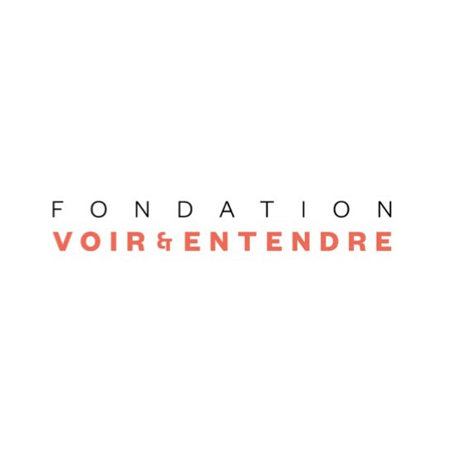Recognizing SparingVision’s Talented Female Scientists on International Women’s Day 2023
March 2023- Last month marked International Day of Women and Girls in Science and, with International Women’s Day around the corner, we wanted to continue to shine a spotlight on some of the accomplished women scientists of SparingVision, whose unwavering commitment to advancing innovative therapies for unmet patient needs in ophthalmology continues to make a significant impact. Through their invaluable contributions, Lucie Churet, Florence Lorget, Raffaella Toso, and Hanen Khabou bring to the table diverse skillsets and expertise, ranging from non-clinical project management and corporate development to gene therapy research. By sharing their stories, we hope to encourage and empower the next generation of women scientists to pursue their dreams and effect positive change in the scientific community.
International Women’s Day series – Interview with Lucie Churet, Non-clinical Associate Manager
What would you say to a young girl interested in pursuing a career in science?
When it comes to working in science, there are no limits. The possibilities are endless! There are numerous careers, opportunities, and paths to choose from. You don’t have to be perfect. You can just be yourself, with your own skill set, and you will find a place where you will bring added value. The key to working in science is the ability to overcome challenges and the desire to constantly learn and push boundaries. No matter your background or interests, you have something valuable to offer in science.
What has been your favorite part of working in science and what keeps you motivated to continue your work?
My driving force is the desire to address unmet patient needs with patience and determination. What motivates me is the ability to translate a research project into a therapeutic solution, bridging the gap between research and clinical trials. Early in my career, the drive to make a meaningful contribution to the approval of a CTA/IND regulatory dossier was a major motivator. Maintaining a patient-centered mindset is crucial to sustaining motivation in this field. Hard work and dedication are required to meet the needs of patients and make a positive impact on their lives. This is my favorite aspect of working in science. We don’t work for nothing; we work for the patients, to enhance their quality of life.
What does a typical day at SparingVision look like for you?
In the Development Sciences department, no two days are alike as our workload varies depending on the progress of preclinical studies and regulatory submission strategy. Personally, I am involved in all stages of a preclinical study: from the contracting phase, where I negotiate with CROs and labs, to monitoring the study during the in vivo – or in-life – phase, to collecting and analyzing data and, finally, communicating the study results. A key aspect of my job is data synthesis, where I work with large amounts of data to draw conclusions and present them to different audiences, including internal management and board members, or external audiences at scientific meetings. This job demands not only scientific expertise and knowledge, but also project management skills to manage timelines, budgets, resources, and costs. The job requires adaptability and flexibility, as well as strong interpersonal and communication skills. I thoroughly enjoy it!
International Women’s Day series – Interview with Florence Lorget, PharmD PhD DABT, Chief Development Sciences Officer
How do you believe we can encourage more young girls to pursue careers in science and technology fields?
My first piece of advice for young girls is to not be intimidated by math. Unless you plan on pursuing a career in mathematics, basic math skills are sufficient in biology. My second advice is to foster a curious and open-minded attitude towards all aspects of science. Science is present in every aspect of our lives, so embrace opportunities to explore and learn!
What professional accomplishment are you most proud of?
I am very excited about the progress of our two lead programs at SparingVision. I take great pride in every step of our project development but being at the forefront of the development of a pioneering science is incredibly rewarding! At the other end of the spectrum, in the past I have worked on two programs which are now available on the market for skeletal dysplasia. Seeing a project reach the commercial stage and make a real-world impact on to people’s lives is truly special and humbling.
Why did you choose to join SparingVision?
I chose to join SparingVision because I am really interested in new technologies and the potential to address unmet medical needs. Retinitis Pigmentosa is one such need and SparingVision’s gene-agnostic strategy is truly innovative and holds the potential for a significant impact.
International Women’s Day series – Interview with Raffaella Toso, PhD, Vice President Corporate Development
What sparked your initial interest in science and who inspired you?
It was in middle school that my love for science truly took off. I had a human biology teacher who was incredibly passionate about her subject. Her excitement and energy were contagious, and her presentations were both informative and inspiring. She ignited a spark within me, and I realized that science was the perfect combination of two of my passions: understanding how things work and trying to fix them when they don’t work. From that moment on everything just fell into place, and I knew that science was the right path for me.
In college, I studied biology, and I was captivated and humbled by the DNA molecule and the idea that such small a component could determine who we are and make each of us unique. Molecular biology became my passion and, together with the college professor who taught this class, it paved my future.
What has been your favorite part of working in science and what keeps you motivated to continue your work?
After joining the Children’s Hospital of Philadelphia, I was fortunate enough to work on a project with therapeutic potential. This was a turning point for me as I realized the impact my work could have on someone’s life. As part of the team at Spark Therapeutics, every challenge was worth it because I had a purpose in mind – bring hope and treatment to patients. Pictures of patients were on the walls to remind us who we were really working for. This motivation has carried through at SparingVision where we all have that patient focus driving us forward.
International Women’s Day series – Interview with Hanen Khabou, PhD, Scientist
What sparked your initial interest in science?
When I was in school, I was interested in different fields of science including biology and astronomy and space. However, it was genetics that truly piqued my interest in biology as a potential career. I took a genetics class in my final year of high school and was hooked. I continued studying genetics and molecular biology in college, fascinated by the impact it has on the body, nature, plants, and microorganisms. DNA is everywhere and I was intrigued by the possibilities of genetics.
Since my time in high school and college, there has been constant improvements and a lot of creativity seen within the fields of genetics and molecular biology. I am impressed by what we can do with genetics and the tools that we can design to answer fundamental science questions and treat genetic diseases. Indeed, it was during my time at college that the industry began to see real momentum in the development of gene therapies. It’s an incredible and ever-evolving field, and I am grateful that I chose to pursue a career in gene therapy to develop treatments for patients affected by rare genetic disorders.
What has been your favorite part of working in science and what keeps you motivated to continue your work?
If I had to pick my favorite aspect of my job, I would say that it is the continuous learning opportunity. It satisfies my thirst for knowledge and keeps things exciting, as there is always something new and challenging to dive into. Sometimes, I even wish we had more than 24 hours in a day so I could learn even more.
Another aspect that I love is working in a team. Collaborating with others and seeing different perspectives come together to solve a common goal is truly enjoyable. Each team member brings their unique skills, knowledge, and expertise to the table, and it’s amazing to see the project come to life, bit by bit.
Why did you join SparingVision?
I co-founded Gamut Therapeutics with my former PhD advisor, Deniz Dalkara. After a year of developing the company, we were acquired by SparingVision, and I joined the team as a Scientist and Project Manager to continue work on the development of SPVN20.
SparingVision’s 3-pillar strategy
July 1, 2022- In this multi-part video series, SparingVision presents its corporate strategy and how we are developing new treatments across three core areas of expertise – what we call our “3 pillars”: gene-agnostic gene therapies, genome editing technologies, and in vivo reprogramming.
Watch below as our CEO, Stephane Boissel, provides an outline of the three pillars we are focused on here at SparingVision.
SparingVision’s 3-pillar strategy : gene therapy, the 1st pillar
Watch below as Deniz Dalkara, advisor at SparingVision and Team Leader at the Paris Vision Institute, discusses our first pillar: gene independent gene therapies.
SparingVision’s 3-pillar strategy : genome editing, the 2nd pillar
Watch below Caitlin Collin, Senior Scientist in Gene Editing, talk about our second pillar of exploration – genome editing – and our strategic collaboration with Intellia Therapeutics, Inc. to develop novel treatments utilizing their CRISPR-Cas9 technology.
SparingVision’s 3-pillar strategy : in vivo reprogramming, the 3rd pillar
Watch below Mehdi Gasmi, acting Chief Scientific Officer, talk about our third pillar of exploration – in vivo reprogramming .








